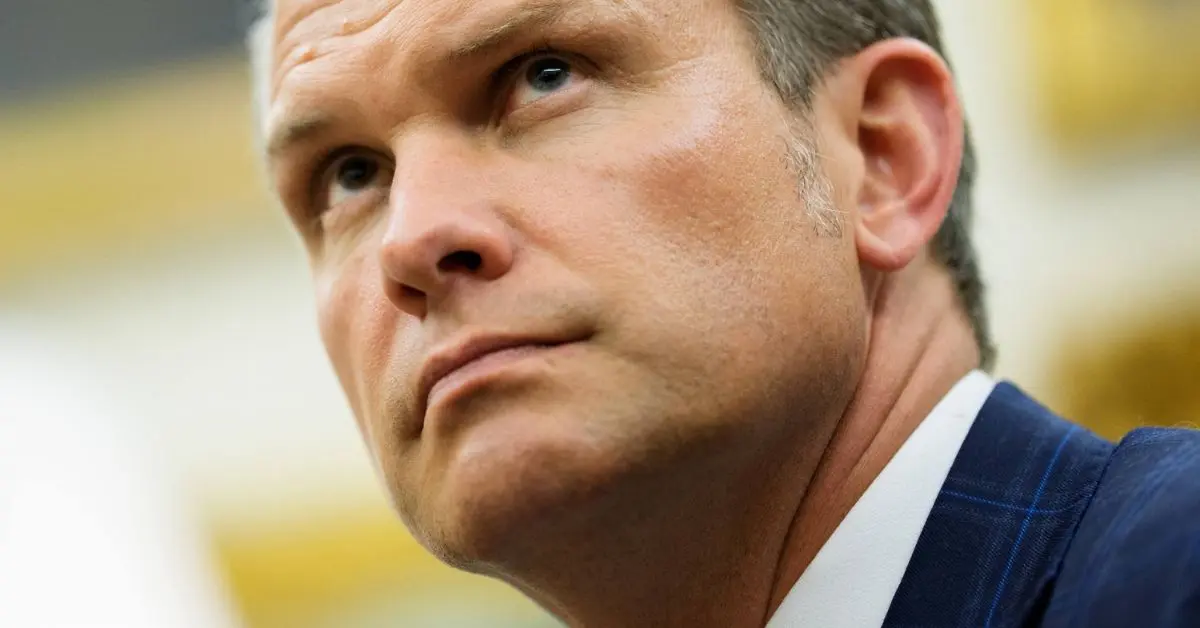Copyright go

A rush transcript of "This Week with George Stephanopoulos" airing on Sunday, October, 2026 on ABC News is below. This copy may not be in its final form, may be updated and may contain minor transcription errors. For previous show transcripts, visit the "This Week" transcript archive. MARTHA RADDATZ: Our thanks to Jay. And I'm joined now by Treasury Secretary Scott Bessent who is traveling with the president in Malaysia. And Mr. Secretary, we know you have been meeting with the Chinese vice premier. President Trump will have a meeting with President XI later this week. We have read this morning that you said there is a very successful framework in place now, tell us about that, please. SCOTT BESSENT: Thank you, Martha. Good to be with you. So this was the fifth meeting that I've had with my Chinese counterpart, the vice premier, He Lifeng and we covered a wide range of issues. And I think we've reached a substantial framework for the two leaders who will meet in Korea next Thursday. So, you know, on the, on the table the president had given me maximum leverage when he threatened 100% tariffs if the Chinese imposed their rare earth global export controls. So I think we have averted that, so that the tariffs will be averted. And we have a regular meeting -- regular quarterly meeting, with the Chinese. It was scheduled for November 10th, or before November 10th. I don't think we will have to have that. So, we have been rolling the tariffs quarterly, so we agreed on that. We also agreed on substantial agriculture purchases for U.S. farmers. We agreed that the Chinese would begin to help us, with the precursor chemicals for this terrible fentanyl epidemic that's ravaging our country. So I would say that it was a very good meeting overall. MARTHA RADDATZ: And of course, it's up to President Trump, but what kind of concessions were made, especially on these rare earth minerals? SCOTT BESSENT: I'm not sure what- what you meant is-- they had threatened to put a global, export licensing regime and I believe that they are going to delay that for a year while they reexamine it. MARTHA RADDATZ: This will be the first time that President Trump has met President Xi. He says they have a very good relation. But, but we've also seen him say that about President Putin, and it didn't go so well. Why are you confident this will go better? SCOTT BESSENT: Well, this isn't the first time they've met. This is the first time they've met in his second term, and I think the purpose of the meeting for the past two days between myself and the vice premier was to make sure that they have a successful meeting and based on this substantial framework from the past two days, I think that this could be a fantastic meeting between the two leaders. And they do have a very good relationship. It's based on mutual respect, we're the two largest economies and the two most powerful countries in the world. I've been in the Oval when the president is on on phone calls with President Xi and they show each other a great respect, they iron out their differences. And-- but I think that we have managed to pre-game a lot of that in advance, here in Kuala Lumpur and of course, the meeting on Thursday will be, at the APEC summit in Korea. MARTHA RADDATZ: I did mean the second term. I know they have met before. The president has also said he does want our farmers to be taken care of. You did mention that China has been boycotting American soybeans and American farmers have really suffered. Do you see a real light at the end of the tunnel there? They may allow soybeans again. SCOTT BESSENT: Well, Martha, in case you don't know it, I'm actually a soybean farmer. So, I have felt this pain, too. And there are a couple of things happening here. One, the Chinese have substantially dropped their purchases to almost zero. So they unfortunately have been using American farmers who are amongst President Trump's biggest supporters. I think he had more than 90% support. And then this was one of the biggest crops in 20 or 30 years. So it was a perfect storm. But I think we have addressed the farmers concerns and I'm not going to get ahead of the president. But I believe, when the announcement of the deal with China is made public, that our soybean farmers will feel very good about what's going on, both for this season and the coming seasons, for several years. MARTHA RADDATZ: And what more can you tell us about the additional 10% tariff on Canadian goods? Does it apply to goods that fall under the USMCA? SCOTT BESSENT: Martha, I've been over here in Asia while all that went on, so I can't give you any specifics on that. MARTHA RADDATZ: And today is day 26. I know you have been over there, but there has been a government shutdown here. People are suffering. Federal employees are starting to go to food banks. Any light at the end of the tunnel on that? Should the president be meeting with Democrats again? SCOTT BESSENT: Well, what good does it do, Martha? They dug in. The American people are hostage to Chuck Schumer and Hakeem Jeffries' poll numbers because what's changed between now and the last time there was a clean, continuing resolution is Chuck Schumer has tanked in the polls. They- both of the two guys from Brooklyn, like I call them, are worried about being primaried from the left. 52 Republican senators have voted 11 times to reopen the government, three brave moderate Democrats have come across the aisle. So, you know, I call on moderate Democratic senators to end this craziness. You will be heroes because, Martha, what I can tell you is if we managed to find the money at the- in the middle of October to pay our brave servicemembers, and I think we'll be able to do it on November 1st, but we're going to be out of money on November 15th. And, you know, for our military not to get paid is a disgrace. The other thing that's happening is this is starting to eat into the economy, starting to slow the economy. And we're also starting to see there's a problem with air traffic control. So it's starting to slow down our nation's travel. MARTHA RADDATZ: But Secretary Bessent, I should add that the president's party, your party, controls the White House and both chambers of Congress. You don't think you bear any responsibility for this? SCOTT BESSENT: What can we do? What- what can we do for, you know, this desperate act? That- we can call on them to change their minds, because I can tell you, the $1.5 trillion in spending that they call- that they're calling for, that's- that's not on the table. We inherited a mess. We inherited the worst budget deficit-to-GDP when we weren't in a recession and we weren't at war. It was 6.4, 6.5%. We've managed to bring that down to 5.9%. And we're not we're not going to let them be irresponsible with the budget again. MARTHA RADDATZ: Okay. Thanks for joining us this morning, Secretary Bessent. We appreciate it. Good luck over there. SCOTT BESSENT: Good. Good to see you, Martha. MARTHA RADDATZ, ABC “THIS WEEK” CO-ANCHOR: And Democratic Senator Mark Kelly of Arizona joins me now in studio. And you just heard Secretary Bessent say that the shutdown could end if “brave, moderate Democrats would stop this craziness. SEN. MARK KELLY, (D) ARIZONA: Well, let me tell you how this could end. So, just in less than a week, Americans are going to see their health care costs spike dramatically, going up 100, 200, 300 percent. They know that. The president knows that. He said he wanted to do something about this. But as far as I could tell, he’s spent about one hour negotiating with Democrats on this issue. And now he’s taken off on another trip overseas. I think I heard the Treasury secretary also say that this was about -- somehow about like the debt and deficit. Well, you’ve got to remember, in Trump’s big legislation, they added $4 trillion to the debt in order to give a big tax cut for wealthy people, like him, and like the president, and their wealthy friends, on the backs of the American people and what their health care is going to cost. That’s why these premiums have gone away. They didn’t want it to be $6 trillion in debt. They wanted it to just be $4 trillion. So, this is about the cost that people pay for their health care. RADDATZ: But -- but, look, this week federal workers missed their first full paycheck. You’ve got federal workers going to food banks. The Democrats are dug in on this, but how long can you let this go when you see these things happening, when you see SNAP payments going away for nearly a million Arizonans? KELLY: We don’t want a shutdown, but let me -- let me tell you about it in Arizona. Let me tell you a story about a guy named Brent from Mesa. This guy worked in public safety for 34 years. He left that job. Now he’s a substitute teacher. He gets his health care from the Affordable Care Act, from the exchange. He pays $339 a month. That’s going to go up by $900. He’ll be paying over $1,100 a month for him and his wife. He can’t afford it. This guy has an autoimmune disease. He’s got lupus. This isn’t fair to him and the millions of American like him, though no fault of their own, are now facing these -- this huge spike in the cost of their health care. And -- RADDATZ: So -- so you’re saying you are not budging? KELLY: We -- we -- we are fighting -- RADDATZ: Because of people like him? You are not budging? KELLY: We are fighting for the American people. We’re fighting for the American people. And it’s easily solved. The president says he wants to deal with the costs of people health -- people’s health care. So, why doesn’t he get in the room with us and make Mike Johnson bring the Republican Congress back. What happened to those folks? They’ve been gone for over six weeks now on this extended summer vacation. He needs to get them back into Washington, get them in the room, we can have a serious discussion. RADDATZ: Scott -- Scott Bessent said it wouldn’t do any good because of the Democrats. KELLY: Well, he has no idea what he’s talking about. RADDATZ: No idea? KELLY: It would do some good. If we could -- if we could have a real negotiation about this and with the president, the president has spent one hour on this. How much time has he spent talking about his ballroom? His ballroom that he got all these folks and they’re going to probably get something out of it to spend hundreds of millions of dollars on this room that almost every single American taxpayer will never go in that room. RADDATZ: Privately funding I guess we should add. You voted against a Republican-sponsored bill that would have provided pay for some federal workers. Why? KELLY: Well, we had another proposal to pay federal workers. The problem with that is, that legislation gave too much power to an OMB director, Russell Vought, that’s already out of control, and firing people, furloughing people, ending government agencies. That legislation would give that individual more control. It was ridiculous. RADDATZ: Even if it would pay some federal workers. KELLY: We -- we could have paid federal workers. We had legislation to do exactly that. Put it -- put it out there. It did not pass either. We’re looking for unanimous consent. Republicans blocked it. RADDATZ: OK, I want to talk about Venezuela. The Pentagon is now sending a carrier strike group. You know the massive amount of firepower on a carrier strike group. What is your take on what is happening with these suspected drug boats. Is it legal? KELLY: It’s questionable. And the White House and the Department of Defense could not give us a logical explanation on how this is legal. They were tying themselves in knots trying to explain this. We had a lot of questions for them, both Democrats and Republicans. It was not a good meeting. It did not go well. They have a secret list of 20 something -- 24 organizations that they have now authorized to use -- use kinetic action against without the normal approach that we have for law enforcement. Hey, we don’t want drugs in this country, especially fentanyl. But all these drugs, we -- we should be working really hard to interdict them and prosecute the individuals that are smuggling drugs, not putting young service members at great, legal -- RADDATZ: Isn’t that something that we have been doing, that maybe wasn’t working and then a new approach (ph)? KELLY: We haven’t been (INAUDIBLE) enough job (ph). RADDATZ: Do -- do you think -- KELLY: All the money that DHS currently has, put some of that money towards the Coast Guard to help them with this -- the process of, how do you interdict the -- interdict these drugs in the Caribbean. By the way, those boats in the Caribbean do not carry fentanyl. Those routes are not used to traffic fentanyl to the United States. So, the whole story that this is about fentanyl that’s killing people is false. RADDATZ: Have you seen evidence? Did they present evidence to you that these were drug boats, and, if so, what kind of drugs were on them? KELLY: Yes. RADDATZ: Yes, you were presented evidence? You’re convinced? KELLY: We were -- we were -- we were presented some evidence that does not back up the story that the White House is telling to the American people RADDATZ: And -- and you mean just the fentanyl. But you believe there were drugs on those boats. KELLY: Let me -- there were drugs on some of these boats, yes. RADDATZ: Just -- just some of those boats. And he’s not going to make a declaration of war -- KELLY: We have evidence that there were drugs on some of these boats. But I don’t want to get into the details of which boats in which place and what was found. That was in a secure, in a SCIF. RADDATZ: Understood. KELLY: And some of that they want to keep -- they -- they want to keep that information away from the American people. RADDATZ: Understood. So, he has threatened an attack on land. We have just a -- a few seconds here. Do you think that will happen, and will those carriers -- KELLY: Well, I don’t know. That’s -- that’s a question for the White House. You don’t move a battlegroup all the way from where it was to the Caribbean unless you’re planning on either to intimidate the country, which is rather intimidating, or you’re going to start conducting combat operations in Venezuela. And this doesn’t make the United States more safe. This makes us less safe. I mean starting a war against Venezuela over what is a law enforcement action does not make any sense. RADDATZ: OK. Thanks for joining us this morning, Senator. Always great to see you. KELLY: Thank you. RADDATZ: Up next, a dramatic, cinematic take on what a nuclear strike attempt on the U.S. would look like. My conversation with “A House of Dynamite” director Kathryn Bigelow, when we come back.



